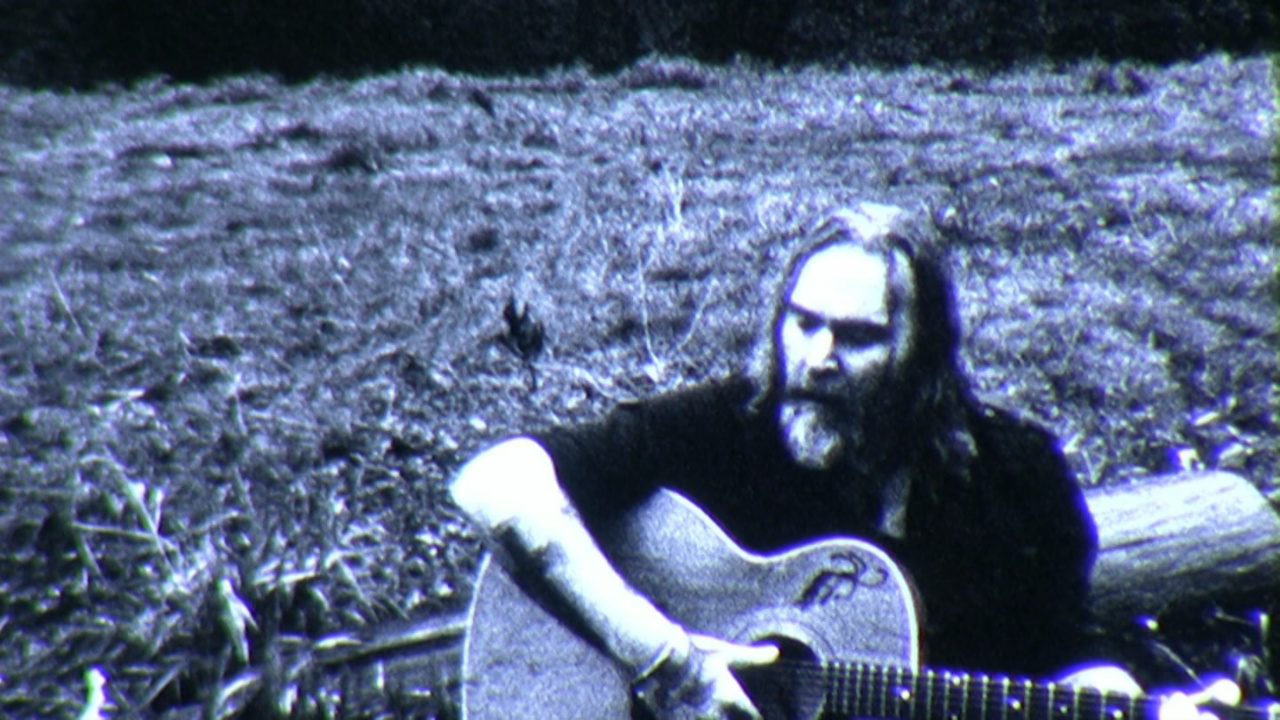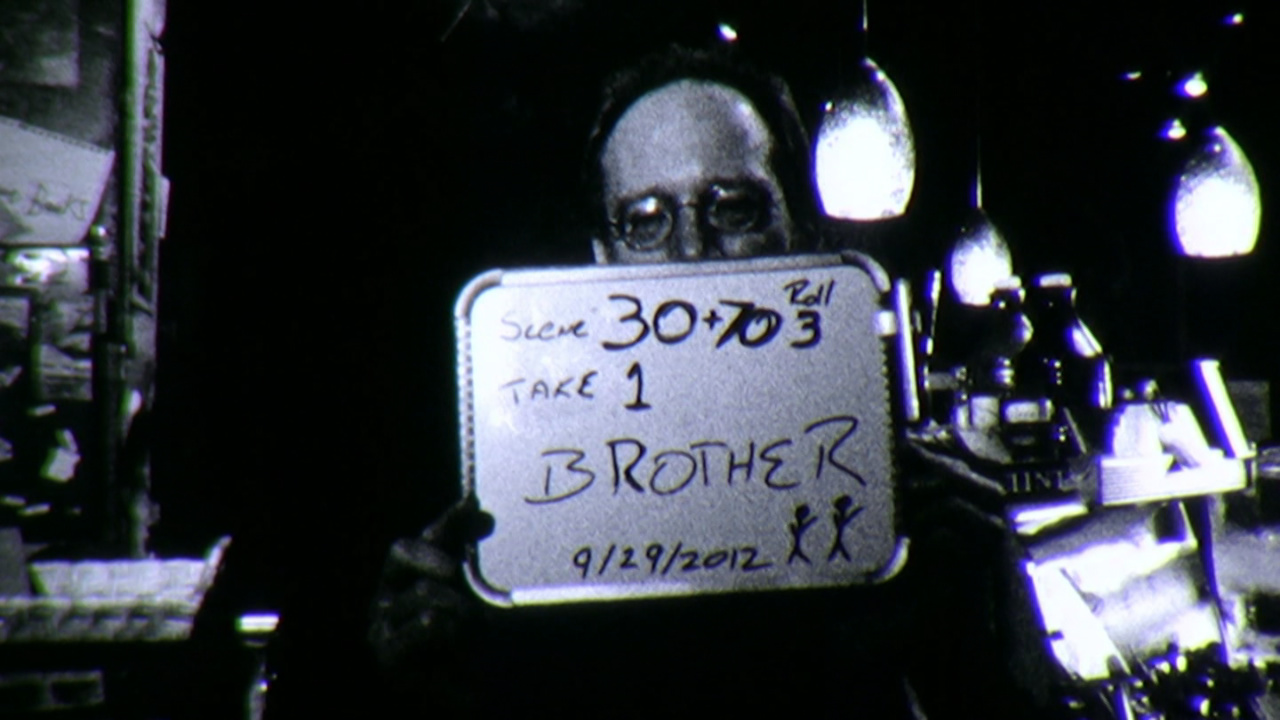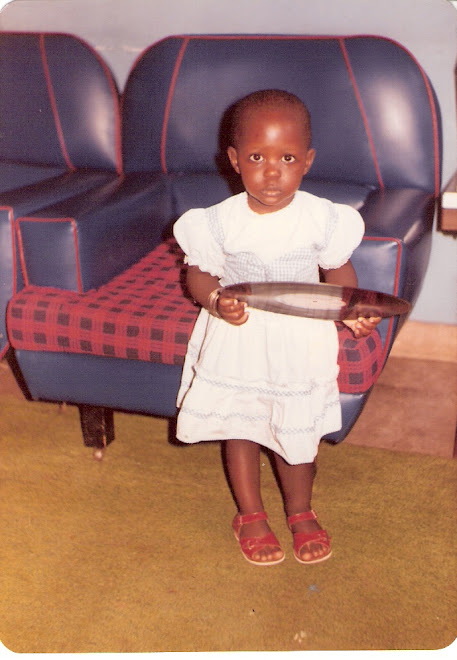MILDRED: Hi Mike! Thanks for submitting Hail!Hail! (Rock 'n' Roll) to ROFFEKE.
Mike Messier: Hi, Mildred. Thanks for the interview and acceptance into Rock 'n' Roll Film Festival, Kenya. This is a a great opportunity for my film to meet new audiences through film! Although, unfortunately, I can't make it to Kenya to meet you, your colleagues and your fans in person, I hope this interview provides some insights into the creative process behind Hail! Hail! (Rock 'n' Roll).
ROFFEKE: Let's get right into it. Of all the topics in the world, why choose a controversial one? Isn't this risky in terms of higher chances of being misunderstood, not being "marketable" or even being banned?
Mike Messier: The level of controversy around our film seems to be generated mostly from the choice of two female lead characters. James Russell DeMello, a friend of mine who I've collaborated with several times, asked me to write a simple two Actor, one location, five minute film. James asked for a quick turn-around so I wrote the script about a struggling rock 'n' roll dude and his wavering - but loyal - girlfriend rather quickly. I left the rest up to James and his crew. James cast the two Actors Anna Rizzo as Robbie and Jessica Rockwood as Roseanne. James felt these were the best Actors for the piece because they are very talented and are good friends beyond the camera. I agree with James's choice and I was intrigued that he cast two female Actors. James then assembled a great crew that he had worked with many times, and that he knew would execute a solid - and artistic - example of everyone's talents. James also chose the song Mr. Suitcase by the uniquely named artist sun@ndmun.
I've been surprised and even disappointed that our Hail! Hail! (Rock 'n' Roll) has struck a nerve with some audiences as offensive. I don't see the piece that way at all. In a supposed "enlightened" and "progressive" world, this love story transcends gender status. It seems that a lot of criticism towards the film is not based on the quality of Acting or Directing, or even writing (I hope!) but more towards the fact that this is a short film with two females who actually kiss each other. Their kiss is intense and passionate, the way the script was intended. For James to direct it this way was true to the story, regardless of the gender of the Actors. So, really, what it comes down to is the question I must ask of "are these critics offended by the actual sexuality displayed or are they offended by the same-sex relationship?" I tend to think the critics are offended by the same-sex relationship based on the small sample of feedback I've encountered.
But that is the nature of art. The job of an artist is to raise the level of the intellect of its audience, not to placate to its current level. By challenging people's comfort levels, Hail! Hail! (Rock 'n' Roll) is successful already, whether or not the film is actually accepted, understood or deemed marketable by anyone's standards. It's also a short film, so Hail! Hail! is more to provoke than to fully entertain or give anyone a "feel good/ closure" ending that is often formulaic and easily predictable in a mainstream feature film designed to make money. By my experience, making money with a film, a short film especially, is so unpredictable and elusive, it's best to just go with one's gut and make art without worrying so much about the financial benefits, backlash, or circumstances that may follow after the release of the film.
ROFFEKE: How do the two characters a) fit stereotypes b)defy stereotypes?
MM: This is a good question. I'd say that Robbie fits the stereotype of the self-inflated, ego based musician who believes her music is "so good" on her way to "making it" that she deserves to have the whole world - and her girlfriend especially - revolve around her. Robbie's ego is fully illustrated by playing directly to the camera, as if the audience of her home-made video is so "into her" as an artist that warrants such a high demand for her every word. In our current online society of vlogs, blogs and links, where almost everyone has an opinion on almost everything, Robbie is very much contemporary. It's easy to see that Robbie is talented has a "marketable" look, as and, indeed, does look quite "rock 'n' roll" even while playing in a humble basement. But is she so talented that her every move "deserves to be chronicled"? That is what she would have us think.
Certainly, I am basing this character on myself and other artists of all mediums who play to an "invisible audience" that we create in our minds. I have hundreds, maybe thousands, of copies of scripts salvaged and saved, of all different versions and "slightly tweaked" drafts. I also have many videos floating around both my personal belongings and also in the online world that chronicle my adventures. This video and written "journal" of my life is my own ego on display, both personally and privately. So, in this sense, I am "the Robbie" in the piece. I would also throw my own musician friends under the bus with me on this one. I have many musician buddies, most of them guys, who will complain endlessly about their band-mates, or about certain "gigs" and venues that don't pan out for the best or that treat them properly. Many times, I have listened to my friends' and also shared my own kvetch stories of the struggling artist who "can't get a break" or feels ripped off by circumstance or other people. Robbie is a dig at all of us. She represents the talent - but also the ego - of the artist. Having Anna Rizzo play Robbie helps make the character human and likable, but ultimately some may see Robbie as self indulgent. That is the point. She is both self-loving and self-loathing, like many artists, both successful and unknown.
Once again, having a strong female Actor like Anna Rizzo as Robbie pushes the audience. We are used to and more accepting of big time Rock 'n' Roll egos like Mick Jagger, Axl Rose, and David Bowie, Iggy Pop etc. Hip-hop music has Tupac Shakur, Puff Daddy, Jay Z, Kanye West, etc. However, female musicians like Madonna or more recently, Katy Perry, Beyonce, Lady Gaga, Miley Cyrus, etc are more likely to get a hard time for their artistic choices, in their lyrics, clothing, and even their sexual presence and body shapes. So to make Robbie a female is a masterstroke by James, in my opinion. As stated, I wrote Robbie initially as a male character. James surprised me with his creative choice and I applaud and thank him for his bold casting.
Jessica Rockwood as Roseanne is a great choice because she plays her character as smart and sensitive while still being unabashed and forward with her sexuality. Jessica is fashionable in real life certainly, but here, she pushes the limits with a sexy style and without compromise. Roseanne represents every private sponsor of a musician, Actor, writer, painter or filmmaker who puts their own ego - and agenda - on the back-burner to support someone else; their dream, their art, their ambition. Ultimately, we get the sense that "the gig may be up" for Robbie as Roseanne is getting sick of supporting her and taking her abuse. But the chemistry of the characters is so intense that they can't get away from each other.
It can be stated that Roseanne is the "rock" to the "roll" of Robbie. Like peanut butter and jelly, they go together. The ultimate test is if the sandwich of their relationship has gone stale beyond the taste of expiration. Or something to that effect.
ROFFEKE: Your story could have been told in any other setting. Why did you choose a rock 'n' roll setting?
MM: Another good question. I believe that a simple basement or any type of makeshift, barren environment where Robbie can set up her guitar and play without distraction represents the isolated nature of an artist. The staircase James uses is the bridge between the two worlds of the outside and the inside of the artist's realm. Ironically, many artists are not social creatures by nature. We expose ourselves, figuratively and sometimes literally, to gain attention, but there is often a shyness and a hurt behind these seemingly exhibitionist actions. This dichotomy is best illustrated here by rock 'n' roll, the ultimate medium of the tortured artist.
ROFFEKE: Cobain comes to mind.
MM: Kurdt Cobain is one of my favorite singers. Same for Jim Morrison. They felt pain, seemingly, and delivered poetry on the highest level. Although I never met either one of them personally, their music and words are so powerful, they deliver a heart-punch of emotion with every listen.
More to the point of the female singer, Janis Joplin demonstrates raw power in every performance. Look up videos of Janis online, as there are many, to see how she conveyed the muse with both love and passion. Courtney Love also had these moments, but more so as rage and reflection. We've witnessed historic performances and enjoyed resonate recordings from Joan Jett, Liz Phair, the ladies from Fleetwood Mac and Heart and all the modern artists I mentioned. People forget - or don't even know - how socially relevant and pained Cher's Half Breed song was - and still is.
ROFFEKE: Say a little bit more about the socially conscious nature of rock 'n' roll.
MM: In 2003, Natalie Maines of the Dixie Chicks made made her infamous remark during a London concert, "Just so you know, we're on the good side with y'all. We do not want this war, this violence, and we're ashamed that the President of the United States is from Texas." In 2003, this was highly unique for professional entertainers, especially popular female mainstream artists, to speak up like this. As we know, many people, as time went by, would come to agree with Natalie's opinion of the second President George Bush. Although not a rock 'n' roll artist in the conventional sense, Maines has as much - or more - courage than anyone other artist of that post 9/11 decade.
Here are links about the Maines/Bush controversey.
https://www.youtube.com/watch?v=A30V9L9BoYU
https://www.youtube.com/watch?v=C8X9-SD0HTA
https://www.youtube.com/watch?v=wAQxX04hzes
In my lifetime, the biggest illustration of the courage and relevance of a singer's singular political or social action is Sinead O' Connor's appearance on Saturday Night Live back in 1992. Just starting a commercially successful rise, Sinead ripped up a photo of the Pope to protest sexual abuse incidents and other atrocities in the Catholic Church as she saw it. This is the famous and infamous "Fight the Real Enemy" incident which some of your readers may be too young to even know about. O' Conner, who had a very successful commercial career at the time, was the featured musical guest on the show. She covered Bob Marley's song "War" with her tweaked lyrics about child abuse (instead of Marley's original lyrics protesting racism) in an inspired - and methodical - attack on injustice as she saw it. In subsequent interviews, Sinead bravely revealed she was a victim of abuse herself and declared that child abuse was the source of all evil in the world. Many, if not most, of her statements seem to make common sense in retrospect, but this was all apparently mind-blowing and thought provoking at the time. And the ensuing controversy, more or less, "ruined her career" in some ways, or at least stigmatized it for the general populous.
If possible, I'd refer your readers, Mildred, to these links about that incident to illustrate how powerful musicians in the public can be.
https://www.youtube.com/watch?v=UJfOffaVmy8
https://www.youtube.com/watch?v=8Q_Gd-4jxn4
https://www.youtube.com/watch?v=AhUzMGQLid4
https://www.youtube.com/watch?v=6P0NwE9Xa2k
http://www.nytimes.com/1992/11/01/arts/pop-view-why-sinead-o-connor-hit-a-nerve.html
https://www.youtube.com/watch?v=Is8bUujGvLg
Watch all these videos. The truth of Sinead's 1992 story is much more interesting than I can describe here in words. While cyber-clicking, this thread of videos and articles is probably the best thing anyone reading this will see today. At the end of the Madison Square Garden performance, two weeks after that recent SNL, Sinead exits the stage after delivering an intense and combative performance to thousands of people; a mixed group of both the hostile and the understanding. The fact that she's singing at a tribute show for Bob Dylan, the very master poet and protester being honored, seems lost on the audience. Sinead leaves, Kris Kristofferson hugs her, and this leaves Willie Nelson alone to deadpan: "Ladies and gentleman, Mr. Neil Young". The legendary talents of Nelson, Young, Kristofferson and even Dylan himself were quickly shadowed by young Sinead's courageous actions, at least for that moment in time.
Does our Robbie in Hail! Hal! (Rock 'n' Roll) have that same potential to effect change, create chaos and challenge the accepted evils of society in her own reality? We can't tell from just this short film. Robbie would have to overcome her own limitations of finances and obtain a position of power with a large following to even "be heard" when she truly finds her voice and focus. Roseanne may continue to support Robbie, or split from her, or even become adversarial. Is Robbie in it for art, or simply to be "rich and famous"... or both? With the advances in social media marketing, Robbie has advantages that her predecessors do not in terms of the ability to quickly build and reach an audience. Certainly, to push Robbie towards a position of cultural influence in the rarefied air of Sinead, Natalie, Madonna and Cher would be a huge writing challenge. I'll give it a shot.
MILDRED: One more question, and this is what I struggle with as a screenwriter. How can one learn to let go of their baby? I don't know if I would have lauded the director if he had cast the male character in my script with a female actress. Grudgingly accepted, maybe, but not applauded him :-) In "Hail, Hail", the director did a pretty good job and his casting choice actually adds new layers to the story. But do you have any war stories of how your script was "butchered" or how your initial idea was misrepresented or misunderstood?
MM: Trust is the key word in letting go. For a baby to walk, the baby itself must be trusted to stand and move. Others must help the baby. The baby must be free.
I'll share some behind the scenes info on our process, as it may be of interest, to both film aficionados and those looking to make their own work.
As per the casting, I know of Anna Rizzo's abilities and talents from working with her intensely for what became the Distance from Avalon Teaser. That project is what Anna, James and I all got to know each other under highly unusual and challenging circumstances. I've also seen Anna's poise, professionalism, and capabilities in auditioning for other projects. So, I had great trust in her also, and excitement with what she could do as Robbie. I did not know Jessica before this shoot, but I was told very good things by James, and I knew that she and Anna are friends in real life, so it seemed like a good fit. I might have raised a curious eyebrow at first, but I never objected to the casting.
Upon seeing the finished piece a few times, I noticed that James had edited a bit of banter at the beginning of the script which were now superfluous once the setting had been established. I had also written one "button" line at the end of the make-out scene where Roseanne states "You're never gonna make it, Robbie". This line was relevant to me when I wrote it, because it brings home the point that Roseanne is still in love even though commercial success for Robbie has become hopeless. So this line indicates that Roseanne might be ready to move on, or perhaps, she is just "stuck".
As it stands, Roseanne's straight to camera glance that ends the film says a lot without words. There is a certain sadness in her eyes, but also a joy, sexiness and mystery. We don't know quite what she's thinking or what her next move will be. However, it can be said, that Roseanne has "taken over" the scene. She is on top, both figuratively and literally. So James ends the film on a metaphorical question mark, rather than a period, which is actually keeping with my style as a writer and filmmaker myself. James understands that is my style because we've worked with each other intensely on other projects, such as the footage that became Distance from Avalon Teaser, also featured in Rock 'n' Roll Festival Film Festival, Kenya.
The title got abridged on the end credits as just Hail! Hail! with the words "Rock 'n' Roll" edited out. I personally would have kept "Rock 'n' Roll" in the the title to indicate the fun and backdrop of the piece and to avoid confusion with a more political statement. So, I've taken the liberty of making the title "Hail! Hail! (Rock 'n' Roll) as our festival entry official title as a creative compromise.
I would use the term tweaked about the Director's choices and I fully understand and appreciate the creative collaboration necessary, especially under time constraints. A Director must be trusted with the material. Script edits happen during film, especially independent film, quite a bit, by my experience. There is often simply not enough time to shoot every desired shot or written line of dialogue, so decisions must often be made on the fly, on the set itself. In the film medium, the Director often has much more leeway and the final word, than in the theater, where dialogue is often the key component. Writers for the stage enjoy protection of their words through certain agreements and contracts. Not so much in film, at least in my independent film world experiences. So, as a screenwriter, one must accept and even embrace this.
Of course, in bigger budgeted films especially, things can get even more "interesting". Producers, financiers and other interested parties, such as distributors, may also be part of this "creative process", often to the chagrin of both writer and director. These contributions - or interference - can be great or disastrous depending on any particular project, team or circumstance. I've read about such complicated situations with recent big budget films such as Fantastic Four and Suicide Squad and the stories are not pretty. So, bigger budget does not always equate to creative freedom for the actual writers or directors. And for a combination Writer/Director, or aspiring or established auteur, these collaborations may be frustrating and/or heartbreaking.
In the end, if a film is made, that is usually much better than it just being a stack of black words on white paper, collecting dust in the bottom of a closet.
Overall, I trusted James' direction on Hail! Hail! (Rock 'n' Roll), especially because he initially requested the script with certain parameters, and was ready to "rock" with it, so to speak.
As a writer, it's great to see one's words come to life, in a colorful and passionate way. The time and energy everyone put into the piece has reached a great audience and looks to open a dialogue and bring an important conversation to the good Rock 'n' Roll and film fans in Kenya.
Thanks for the opportunity, Mildred! - MIKE
- MIKE MESSIER
mikemessiermoviemaker@gmail.com
www.mikemessier.com
OUTTAKE:
MM: While all artists are represented by their work, the rock 'n' roll musician, especially a lead singer, is also represented by their appearance. How much time do musicians spend going into "their look" as opposed to a writer, for example? Compare Britney Spears to Stephen King for a quick illustration.
Monday, September 26, 2016
Friday, September 16, 2016
ROFFEKE Screening and Networking event at We Create Kenya on 17th September 2016
Below is a link to the original programme for the event but a few hours ago, a lady asked me whether the films would be appropriate for her nine year old daughter, who aspires to be an actress. Obviously not all the films are appropriate for children. This IS a rock 'n' roll film festival after all :-) But I am passionate about encouraging the youth to pursue their dreams so I am going to change the program slightly to accommodate the nine year old girl. The first thirty minutes of the event will feature the following child-friendly short films and music videos:
1. Rock is not an attitude (5 minutes)
2. An Angel's tale (3 minutes)
3. Underneath (2 minutes)
4. The girl with the red balloons (1 minute)
5. Song no.23 (5 minutes)
6. Banned Band (10 minutes)
Check out the complete program here
1. Rock is not an attitude (5 minutes)
2. An Angel's tale (3 minutes)
3. Underneath (2 minutes)
4. The girl with the red balloons (1 minute)
5. Song no.23 (5 minutes)
6. Banned Band (10 minutes)
Check out the complete program here
Wednesday, September 14, 2016
Review: "Rita" - Music video for song by Tsenzura
Review by Josephine Koima: Intern
Director: Yuzefovich Valery
Category: Animation
Duration: 4:09 minutes
Music: Tsenzura
‘Rita’ is an animated film adapted from a song by the same name, done by an Israeli Band (Tsenzura). Tsenzura’s music can be described as hardcore punk/rock. as It is about a young girl’s struggles and need to indulge in alcohol and drugs, the things she tries to run from. Perhaps hoping suicide will end her anguish, she gets into a fantasy world, for a few minutes, and realizes that it is scarier and threatening compared to her reality.
Since the song forms a big part of the film’s narrative, it is essential to dig into the lyrics and meaning of what the band represents. ‘Tsenzura’ is Hebrew for ‘Censorship’, most of the song/video contains elements of drugs and sex. These young singers integrate the issues they have grown up with and around into their songs, and the character brings the song to life. There are sexual connotations in Rita’s fantasy that also depict her struggles as a woman i.e. the doctor telling her that ‘she has girl problems’ and suggesting a disgraceful and demeaning ‘cures’.Color has been used to reinforce elements of the story ;Yellow representing the alcohol, red for her kidney that’s apparently damaged because of her abuse of drugs, and interestingly, it has been used as a gag in her tormenting fantasy, the multicolored vomit as she had too much to drink as the song says ‘She can’t learn to drink’
The film makes use of fast-cutting or fast-paced editing where actions follow each other in quick succession, so the viewer gets to absorb much more information, and it also shows chaos e.g. In her fantasy, Rita gets through a lot after taking a pill from the doctor, we see the impact of that action-her distress is magnified.
The song is also a form of criticism; against the many people who tend to associate rock n’ roll to sex and drugs. In another instance, they talk about social issues of democracy and injustice.
It is interesting to learn more about the band, with a name that raises curiosity as ‘Censorship’ and an even more daring choice of genre as rock, one will easily enjoy the diversity that the Israeli music industry can offer.
Director: Yuzefovich Valery
Category: Animation
Duration: 4:09 minutes
Music: Tsenzura
‘Rita’ is an animated film adapted from a song by the same name, done by an Israeli Band (Tsenzura). Tsenzura’s music can be described as hardcore punk/rock. as It is about a young girl’s struggles and need to indulge in alcohol and drugs, the things she tries to run from. Perhaps hoping suicide will end her anguish, she gets into a fantasy world, for a few minutes, and realizes that it is scarier and threatening compared to her reality.
Since the song forms a big part of the film’s narrative, it is essential to dig into the lyrics and meaning of what the band represents. ‘Tsenzura’ is Hebrew for ‘Censorship’, most of the song/video contains elements of drugs and sex. These young singers integrate the issues they have grown up with and around into their songs, and the character brings the song to life. There are sexual connotations in Rita’s fantasy that also depict her struggles as a woman i.e. the doctor telling her that ‘she has girl problems’ and suggesting a disgraceful and demeaning ‘cures’.Color has been used to reinforce elements of the story ;Yellow representing the alcohol, red for her kidney that’s apparently damaged because of her abuse of drugs, and interestingly, it has been used as a gag in her tormenting fantasy, the multicolored vomit as she had too much to drink as the song says ‘She can’t learn to drink’
The film makes use of fast-cutting or fast-paced editing where actions follow each other in quick succession, so the viewer gets to absorb much more information, and it also shows chaos e.g. In her fantasy, Rita gets through a lot after taking a pill from the doctor, we see the impact of that action-her distress is magnified.
The song is also a form of criticism; against the many people who tend to associate rock n’ roll to sex and drugs. In another instance, they talk about social issues of democracy and injustice.
It is interesting to learn more about the band, with a name that raises curiosity as ‘Censorship’ and an even more daring choice of genre as rock, one will easily enjoy the diversity that the Israeli music industry can offer.
Labels:
Animation,
Music Videos,
Review,
ROFFEKE OFFICIAL SELECTION
Subscribe to:
Posts (Atom)




